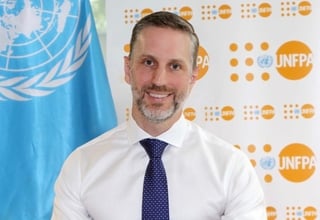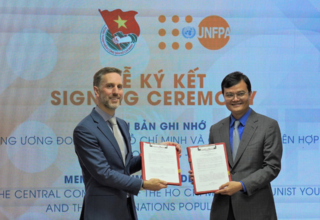Overview
In the 2019 Census, Viet Nam recorded the highest proportion of young people in the country’s history, creating the potential for a demographic dividend. Viet Nam’s 20.4 million young people, aged 10 – 24, accounted for 21% of the population, and the demographic window is projected to last until 2039. Young people’s success and well-being require targeted policies and services to allow them to reach their full potential, also in the area of sexual and reproductive health.
Evidence shows that Vietnamese young people are becoming sexually active at an earlier age. This highlights their need for reproductive health services and information. The unmet need for modern contraception amongst young female migrants aged 15-24 stands at 29.6%, and the adolescent birth rate stands at 11 per 1,000. Young people lack adequate and comprehensive information and services in sexual and reproductive health, and the situation is accentuated among ethnic minorities and people with disabilities (PWD). There is also a significant number of unwanted pregnancies among young people, especially among unmarried adolescents (aged 15-19 years) and youth.
It is estimated that young people in the 16-29 age group living with HIV account for 38% of the total HIV infected population. Child marriage and early unions are still a very common cultural norm and practice, which prevents girls from pursuing education and planning for their life. In Viet Nam, 9% of girls in the 20-24 age group were married before their 18th birthday, which is more common in rural areas (12.2%) than in urban areas (3.7%). Child marriage is a major contributory factor in adolescent pregnancy.
Efforts to promote youth participation are being carried out in Viet Nam, but require much more attention. Only 14.3% of the 496 members of the 14th National Assembly are young members aged under 40 years, and at provincial level, only 8.52% of those who have been elected to the People’s Councils are under 35 years. The Ministry of Home Affairs reported that nearly 40% of young people have never participated in processes linked to policy development related to youth.
What we do
UNFPA supports the government of Viet Nam on the key following interventions to promote youth development:
a. Expand mechanisms/platforms for dialogue between policy/decision makers and young people;
b. Capacitate young people on their effective participation in dialogue sessions at national and sub-national levels;
c. Partner with youth-led organizations in the implementation and management of the Youth Law as well as its national and provincial implementation plans and for humanitarian action;
d. Promote and advocate for young people in decision-making positions;
e. Monitor youth development through data generation and the use of National Youth Development Indicators; and
f. Promote the multi-sectoral approach to SRHR for young people and a nationwide roll-out of comprehensive sexuality education and life-skill education for in and out-of-school youth as well as young people with disabilities.




